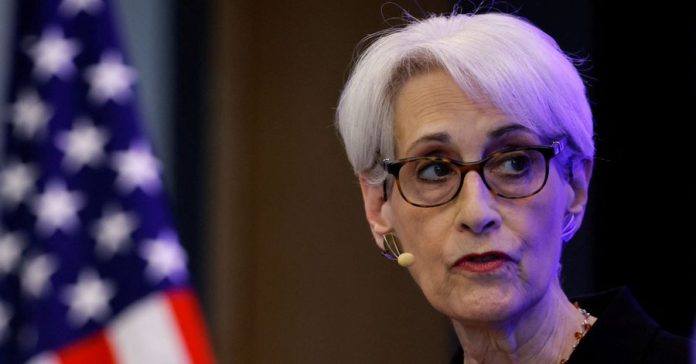U.S Deputy Secretary of State Wendy Sherman and U.S ambassador to Australia Caroline Kennedy plan next month to visit the Solomon Islands, where their fathers fought in World War Two and the United States is now in a modern-day battle for influence with strategic rival China.
Sherman and her delegation will commemorate the 80th anniversary of the Battle of Guadalcanal during her 06-08 August visit, and meet with senior officials “to highlight the enduring relationship between the United States and Solomon Islands” and the opening of a U.S Embassy in the capital Honiara, a senior State Department official told Reuters on Sunday.
Sherman will be just the latest senior U.S official to visit the Pacific region as Washington steps up efforts to push back against Chinese diplomatic inroads.
As well as Kennedy – whose father, assassinated U.S. President John F. Kennedy, took part in the Solomon Islands campaign as a patrol boat captain in World War Two – Sherman’s delegation will include Marine Corps Lt General Stephen Sklenka, deputy commander of U.S Indo-Pacific Command, and Marine Corps commander for the Pacific, Lt General Stephen Rudder.
The State Department official said the visit would also be of personal interest to Sherman, whose father, Mal Sherman, was a Marine wounded at the Battle of Guadalcanal, which began between U.S and allied and Japanese forces in August 1942.
The six-month battle marked the start of U.S.-led offensive operations in the Pacific, showing the strategic importance of the Solomons that endures today.
In Honiara, Sherman will deliver remarks at a U.S.-organised ceremony on Skyline Ridge, site of the U.S Guadalcanal Memorial, as well as at a Solomon Islands-hosted memorial at Bloody Ridge. She also will attend additional memorial events organized by Solomon Islands and Japan, now a close U.S ally.
“These events will recognize the service and sacrifice of those who fought in the Battle of Guadalcanal, including U.S. and Allied forces, the people of Solomon Islands, and the people of Japan,” the official said.
China has been seeking to boost economic, military and police links with Pacific island nations hungry for foreign investment. Washington has stressed its historical ties to the Pacific, especially shared sacrifices during World War Two, and vowed to commit more resources.
Beijing’s growing influence was highlighted by its security pact with the Solomon Islands this year, a move that fanned concerns in Australia, New Zealand and the United States.
In February, Antony Blinken became the first U.S secretary of State to visit Fiji in 40 years. While there, he announced a plan to open an embassy in the Solomon Islands and called the Pacific “the region for the future.”
At a four-day summit this month, Pacific island nations put the two superpowers courting them on notice, telling what are also the world’s biggest carbon emitters to take more action on climate change, while pledging unity in the face of a growing geopolitical contest.
Leaders at the Fiji summit also bristled at a Chinese attempt to split some of the nations off into a trade and security agreement, while Washington pledged more financial and diplomatic engagement.
SOURCE: REUTERS/PACNEWS













